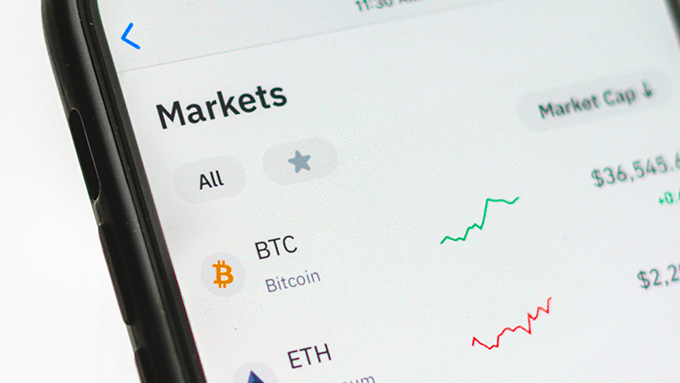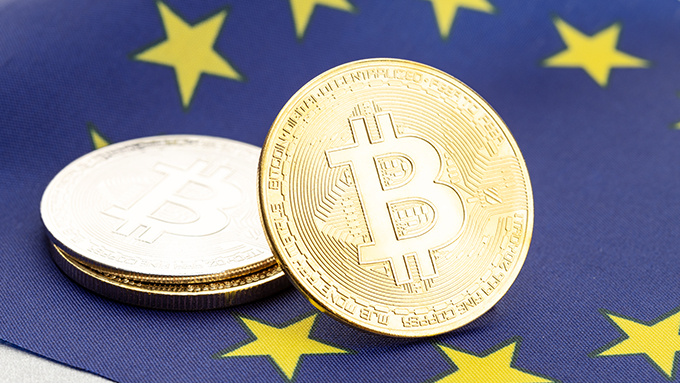Market Manipulation Offense in terms of Turkish Capital Markets Law
Capital markets enable the transfer of resources from investors to entrepreneurs and security prices on stock exchanges that affect most investors’ decisions. In order to ensure accurate, up-to-date, and healthy prices in the markets, prevention of asymmetric information, sense of confidence and price equality should be reinforced. This article examines the manipulation offense that is defined by the legislator through taking into account the aforesaid purposes and its criminal sanctions.
Definition
The legislator placed necessary regulations into effect through Capital Markets Law numbered 6362 (“CML”) in order to protect the retail and institutional investors from market manipulation. This offense is named as manipulation in Capital Market Law numbered 2499, which was abolished in 2012, while the term “market fraud” was preferred within Article 107 of the CML. Since this offense continues to be referred to as manipulation, in both national and international doctrine and jurisprudence, the word “manipulation” shall be also used in this article.
Pursuant to several definitions in the doctrine, acts that are designed to (i) interfere in price mechanisms by blocking supply and demand interaction, (ii) trick people into trading a security, and (iii) keep the security price at an artificial level, are all considered to be manipulation[1]. The CPL, however, does not specify which transactions are referred to as manipulation. An event-based assessment shall be made to determine whether an offense of manipulation has occurred or not.
Types of Manipulation
Transaction-based Manipulation
According to Article 107/1 of the CML, those who make purchases and sales, give orders, cancel orders, change orders, or realize account activities with the purpose of creating a wrong or deceptive impression on the prices of capital market instruments, their price changes, their supplies and demands, shall be sentenced to imprisonment from two* years up to five years, and shall be punished with a judicial fine from five thousand days, up to ten thousand days.(* In 2020; the period was changed as three years to five years)
Transaction-based manipulators affect security prices through their buy-and-sell transactions, and try to create an artificial appearance of market activity by hiding their actual intentions. There is no lower or upper limit on transaction values to identify the manipulation. Markets that have asymmetric information and inexperienced retail investors, but do not regulate a public disclosure obligation, get easily manipulated. Thus, the manipulation mostly harms the inexperienced retail investor.
Furthermore, transaction-based manipulation is an endangerment. For this offense to occur, it is not necessary for a loss to be directly borne, the purpose of the perpetrator to be achieved, and the benefit to be taken.
Behaviors assumed as a transaction-based manipulation are as follows:
- Giving buy and sell orders at the same or at close time of the session, and matching issued orders and making transactions that do not result in any change in the share ownership, and these orders and transactions have a significant place within the total transactions of the person, and within the total transaction volume;
- Orders and transactions taking place in a very short period of time, and causing a change in the share price in the reverse direction;
- Performing transactions intensively at the beginning or at the end of the session;
- Issuing orders to change the pending best buy and sell price, and the cancellation of these orders before they are executed;
- Executing orders and transactions through different accounts and different investment firms, significant changes in the security price during the execution of those transactions, not having financial strength that may explain the transactions carried out in the accounts of the account holders, and the lack of knowledge and experience of the transactions on securities that explain the transactions;
- Giving mutual buy and sell orders from the highest or lowest price continuously via different investment firms and different accounts, and matching these orders between colluding persons in the session, as well as executing transactions as a result of matching orders, when these orders and transactions have significant volume with respect to the total transactions[2].
Information-based Manipulation
According to Article 107/2 of the CML, those who give false, wrong, or deceptive information, spread rumors, give notices, make comments, prepare reports or distribute them in order to affect the prices of capital market instruments, their values, or the decisions of investors, and benefit from it, shall be sentenced to imprisonment from two* years up to five years, and shall be punished with a judicial fine up to five thousand days. (* In 2020; the period was changed as three years to five years)
In information-based manipulation, investors are given incorrect or misleading information. The offense also arises through intentional non-compliance with the public disclosure obligation. Groundless news about a company that is announced in newspapers or on television, and which affect the company’s stock value, and misinformation in the prospectus drafted for the issuance of capital market instruments, are examples of this offense.
For the formation of an offense, there should be a willful act for the purposes specified in the Article. In addition, according to the amendment dated 07.04.2015 brought by Law numbered 6637, the offense arises only when one benefits from the information-based manipulation.
Another aspect to be considered in the Article is that the persons who prepare research and audit reports regarding issuers and capital market instruments may also be held liable.
Specific Provisions for Investment Firms
Investment firms have an obligation of notification pursuant to Article 102 of the CML. According to this Article, if there is a matter implying any information or doubt that a transaction constitutes a manipulation, the investment firms are obliged to notify this situation to the Capital Markets Board (“Board”), or to other institutions and organizations to be determined by the Board. The Board shall determine the principles and procedures of the obligation of notification. Even though there is a provision in special laws, those who make a notification to the Board cannot give information to third parties, agencies and institutions, including those who are engaged in the transactions, about the notification made, and about those to whom the notification has been made, except for the courts, prosecution offices, and the Presidency of the Financial Crimes Investigation Board.
Besides, according to Article 8 of the Disciplinary Regulations of the Turkish Capital Markets Association of Turkey (“Association”), investment firms that commit a manipulation offense, or pave the way for persons to commit this offense, shall be temporarily suspended from Association membership. The suspension may not exceed six months, taking into account the nature and the severity of the act, and shall be deprived of the Association membership rights. To apply this sanction, the act must be ruled as an offense, and be found to be directly linked to the investment firm, in the decision of the court of first instance.
Measures to be applied in Manipulation Investigations
According to Article 101 of the CML, in what concerns real persons or legal entities, as well as the authorized officers of those legal entities, about whom a reasonable doubt exists concerning the execution of manipulation, and also regarding the related capital market instruments, the Board is authorized to take all kinds of necessary measures to provide the effective and robust functioning of the market, and to determine the principles and procedures regarding the implementation of these measures, including;
- Temporarily or permanently prohibiting trading activities in the exchanges;
- Changing the methods of clearing;
- Imposing restrictions upon the transactions of margin trading, short selling, borrowing and lending;
- Imposing a guarantee obligation or changing the obligation;
- Being traded in different markets, or determining different transaction principles;
- Restricting the extent of the distribution of the market data; and
- Imposing a transaction or position limit[3].
In addition, when the company implies a buy-back program, the Board may impose a restriction of the transactions on the shares of the related listed corporation of the real persons or legal entities with whom it is associated, directly or indirectly as to management, auditing, or capital, and to transactions made by other associated persons.
If there is an organized offense of manipulation, the manipulators may be punished pursuant to Article 220 of the Turkish Criminal Code. According to Article, those who form or manage organized groups to execute acts that are defined as offenses under the law, are punished with imprisonment from two years to six years, unless this organized group is observed to be qualified to commit these offenses in view of its structure, quantity of members, tools and equipment, held for this purpose.
Effective Remorse
Only transaction-based manipulators may benefit from effective remorse. According to Article 107/3 of the CML, in the event that the person who has committed the crime defined in the first paragraph displays remorse, and pays to the Treasury an amount that is twice the benefit he/she has obtained or has caused to be obtained, not being less than five hundred thousand Turkish Liras, no sanction shall be imposed if the payment has been made before the investigation commences. The sanction to be imposed shall be reduced by one-half, if the payment is made during the phase of the investigation. If the payment is, however, made during the phase of prosecution, up until the judgment is rendered, the sanction to be imposed shall be reduced by one-third.
Conclusion
Market abuse with manipulative behaviors not only increases the companies’ self-financing costs, but it also harms market integrity as well as investor confidence in the markets. For example, manipulation prevents the entry of new investors into the market by interrupting the supply and demand that is shaped by the free-market. As well, manipulation does not only affect investment decisions on the stock exchange. The losses of the companies and investors reach larger numbers as the data on the stock market are also taken as the basis in contracts that are signed off-exchanges for bank loans and guarantees.
Technological developments enable easier access to financial information. This, however, also means that misleading information that will affect the value of the capital market instruments will rapidly spread. With technological development, it may be that a certain definition of manipulation cannot be made, and different types of manipulation shall continue to emerge.
[1] Sermaye Piyasası Kurulu, Hisse Senedi Piyasasında Manipülasyon (“Manipülasyon”), December 2003 p. 2.
[2] Sermaye Piyasası Kurulu, Manipülasyon p.16 ff.
[3] The comprehensive provisions on measures to be applied in manipulation investigations are regulated in the Communiqué on Measures to Be Taken for Insider Trading and in Manipulation Investigations (V-101.1).
All rights of this article are reserved. This article may not be used, reproduced, copied, published, distributed, or otherwise disseminated without quotation or Erdem & Erdem Law Firm's written consent. Any content created without citing the resource or Erdem & Erdem Law Firm’s written consent is regularly tracked, and legal action will be taken in case of violation.
Other Contents

In its most basic form, securitization is the process of pooling and repackaging illiquid assets or rights with the purpose of converting them into tradable and interest-bearing financial instruments to be issued to capital market investors…

The reduction of the share capital is a transaction that results in the nominal decrease of the share capital item on the balance sheet. The nature of a share capital reduction is an amendment to the articles of association. Articles 473–475 of the Turkish Commercial Code No. 6102 (“TCC”) regulate the general principles of capital reduction.

A new legislative package, the Listing Act, was adopted by the European Council on October 8, 2024 to make capital markets within the European Union (“EU”) more attractive and facilitate companies' IPO process. The Listing Act amends the EU Prospectus Regulation, the EU Market Abuse Regulation, the Markets...

Crypto assets have become a significant component of financial markets in recent years, prompting the development of a regulatory framework in response to growing investor interest. In this context, both the amendments to Capital Markets Law No. 6362 (“CML”) and various resolutions issued by the Capital...

New ventures and, in this context, start-up companies have been essential players in economic life for a long time. Significantly in terms of new technologies and creative ideas, instead of established and large structures, new ventures and structures where individuals' personal contributions matter more greatly...

The website is one of the most important tools that reinforces the transparent management approach of companies and enables company stakeholders such as shareholders, company creditors, and those who carry out activities with the company to access important information about the company quickly and...

Crypto assets have created a significant change in the financial system with the emergence of blockchain technology. The decentralized and digital nature of these assets has offered a new method outside of traditional monetary systems...

The Keener decision represents a pivotal moment in interpreting and applying securities laws as it pertains to the definition and regulatory treatment of “dealers” within financial markets.This case arose from actions taken by the Securities and Exchange Commission (“SEC”) against Justin W. Keener, who was accused...

Responsible Management Principles (Stewardship Principles, SP) have been regulated by the Capital Markets Board (CMB) regarding the securities investment funds (Funds) founded by Portfolio Management Companies (PMC)...

Information holds paramount importance in the capital markets. Investors, whether seasoned professionals or newcomers, depend on various sources to guide their decisions amidst the complexities of the capital markets...

In the intricate web of finance and law, the US Court of Appeals for the Second Circuit’s ruling of Kirschner v. JP Morgan Chase Bank, N.A. (“Kirschner Ruling”) stands at the confluence of international banking regulations and securities law, presenting a thorough examination of the legal frameworks governing the...

Sustainability-linked derivatives transactions involve the embedding of a cash flow in derivatives that will change in a sustainability-linked way, and institutions' compliance with environmental, social, and governance (ESG) objectives is monitored using specific performance indicators...

There is no specific procedure in the Turkish Commercial Code (TCC) that publicly traded corporations must follow in terms of providing collaterals, pledges, mortgages and sureties (CPMS). Authority for and procedure of provision of CPMS are determined according to the general rules...

In line with the financing needs of companies and their desire for institutionalization, the number of public offerings shows an upward trend across Türkiye. Looking at the data published by the Capital Markets Board on its website regarding initial public offerings, it is seen that, it is seen that 35 public offerings...

The Communiqué on the Principles Regarding the Companies whose Shares will be Traded on the Venture Capital Market (II-16.3) ("Communiqué") has facilitated for private joint stock companies to sell their shares to qualified investors without a public offering. Thus, a new opportunity is created for joint stock...

Swiss Financial Markets Supervisory Authority (“FINMA”), through its decision dated 19 March 2023, approved the merger of Credit Suisse with UBS Group AG (“UBS”) and to write down the Additional Tier 1 capital bonds (referred to as AT1) issued by Credit Suisse, with a total value of approximately CHF 17 billion...

The Capital Markets Board’s (“Board”) long-awaited Communiqué on Crowdfunding No. III - 35/A.2 (“Communiqué”) entered into force through its publication in the Official Gazette numbered 31641 and dated 27 October 2021...

Mortgage covered bonds are one of today’s most common structured finance products. Although they have a prominent presence in the marketplace today, these bonds have historical roots in the Pfandbrief of 18th century Prussia. In the aftermath of the Seven Years War, King Frederick the Great implemented...




















































